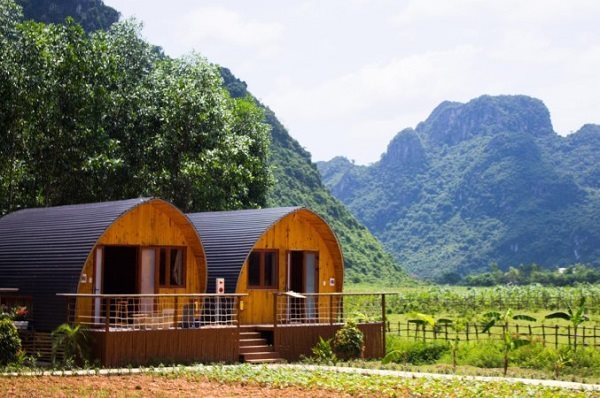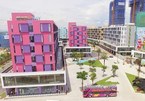While resorts, hotels, homestays and bungalows are well known, farmstays have become a choice for realtors in recent days.

Farmstays developed in Italy in 1980 and later appeared in North America, Australia and Asia.
However, in Vietnam, the new tourism type is different from the original model.
A farmstay is understood as a ‘hybrid’ product between ‘farm’ and ‘homestay’. Realtors buy agricultural land to develop garden houses to attract tourists.
As more and more investors have shown interest in the model, analysts believe that a big real estate trading wave will kick off.
Searches on Google show tens of thousand of results that introduce farmstay projects calling for cooperation. A lot of sellers commit to high profits to lure more investors.
Lam Dong Farmstay, covering an area of 280 hectares in Loc Phu commune in Bao Lam district in Lam Dong province, is the best known among investors.
| After several years of witnessing the strong rise of condotels, Vietnam’s real estate market is now seeing a new trend in farmstays. |
The owner offered a very attractive selling price of VND370 million for 5,000 square meters of land.
Buyers have the right to own the land or transfer to third parties if they want. The owner can provide investment registration certificate, land use right certificate for 50-year use and other necessary documents.
Thoi Bao Kinh Te Saigon’s reporters, after contacting the seller, found that there are a lot of legal risks. The land use right certificate (red book) clearly shows that the land is productive forestland, while the investment license says the land is allocated to Dai Hai JSC to protect the forests and organize hi-technology agricultural production. The project must not be used for ecotourism development.
Analysts have warned investors to be cautious about the investments, saying that investors may ‘follow the same path of doom’ like condotel investors.
Farmstay projects put on sale can be found in many localities, from the north to the south, including Hanoi, Hoa Binh, Vung Tau, Binh Thuan, Ninh Thuan, Gia Lai and Long An. The common feature of the projects is that the owners promise very high profits.
Analysts believe that the high profits of 8-12 percent promised by sellers are not feasible in the real estate sector.
Farmstays appeared in the market in recent years as a part of the ecological resort real estate movement. This is a second-home trend which has been growing rapidly recently. However, it is a new product and profitability remains a big question.
Translated by Thanh Mai

Condotel market faces gloomy prospects
The condotel market has faced a gloomy period due to low absorption rate while inventory has been on the rise, experts said.

Ministry proposes not allowing conversion of condotel into residential projects
The Ministry of Public Security has proposed not granting ownership certificates to allow condotels, tourist villas and officetels to be turned into residential projects.